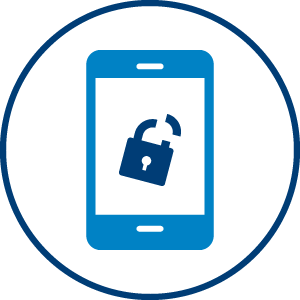
Online Dating Scams To Be Aware Of

The chance for new romance can be exciting for people who find themselves single, divorced, or widowed over 50. However, the dating landscape has changed dramatically, especially with the advent of dedicated online dating sites and social media sites. Which means there are more opportunities to find a great new mate, but also more opportunities for online dating scams.
$1.3 Billion
The estimated financial losses in the last 5 years due to online dating scams, according to the Federal Trade Commission
$6,000
Median financial loss from online dating scams among people 60-69
$547 million
Reported losses from online dating scams in 2021 alone
Find What You Need
The Reality of Online Dating Scams
Most adults are aware of the dangers of identity theft, fraud, and scams on the Internet, but they may not be prepared for the hidden dangers in the online dating world. In fact, more than any other age group, singles over 50 who are searching for love and companionship are the most vulnerable to scams that lead to greater financial losses. The statistics are sobering (see above). However, the vast majority of these online romance scams are never reported.
That doesn’t mean you should avoid the Internet entirely when looking to boost your dating life. Online dating platforms have ways to block unwanted users and detailed advice on how to keep yourself safe. The key is to be aware of – and wary of – the common types of scams and the red flags to watch out for.
Common Types of Online Dating Scams
Fake Profiles and Urgent Financial Need
The most common scam is a fraudster who sets up a fake profile, initiates contact with you and then when they’ve built enough trust and connection, has a financial emergency. They will ask for money and the need will seem sudden or urgent. For example, they may need money for a medical issue for themselves or a family member, they may say they are stuck somewhere or were robbed during their travels and need money to get home, or they need financial assistance for a business deal or promising investment.
There are scammers who use others in their criminal activity by asking for help to complete financial transactions for them. This is a method they use to launder money they’ve gained from illegal means. They may ask you to transport money to others involved in the scheme by purchasing gift cards for them using bank transfers or other forms of payment such as Google Pay.
The Military Romance Scam
The U.S. Army says it gets hundreds of reports a month about online scammers who assume the personas of actual military personnel on social media or online dating sites. They build a trusting relationship with you, replete with details of military life, but are suddenly deployed when it comes time to meet in person. Then they start asking for money to help pay uncovered medical or legal costs, flights home, or other reasons, sometimes working with accomplices who pose as doctors or lawyers to corroborate their story.
Verification Code Scams & Malware
A common scam on Tinder is when someone you’ve matched with tells you they can’t continue the communication until you verify your profile. They provide a link to complete the verification. However, this isn’t how Tinder verifies profiles and the link is to a third-party site that collects personal information like date of birth and banking details intending identity theft.
Similarly, a match might send you links to their other social media sites or webpages, often which are malware sites that can steal your personal information.
“Sextortion”
This happens when a scammer asks for intimate photos of you. Or they set up a video chat with you and their camera is conveniently malfunctioning, but they encourage you to disrobe or do intimate things on camera. This can lead to “sextortion,” which is when money is extorted from someone using the threat of making the intimate photos or videos public.
Red Flags to Watch For
These are some common red flags to look out for on online dating sites and social media to avoid becoming the victim of online dating scammers.
Profiles that lack detail or photos or have photos that seem “too perfect.”
When a profile contains very little information about the person, beware. The person’s location or where they live may be missing. There will often be no other photos or details about their life, friends and family and personal interests. Or the photos that are there look like they were lifted from a magazine or website, possibly of a professional model. Scammers will use photos copied from the internet or will assume the identity of an actual person by copying photos and information from their social media profiles.
They contact you out of the blue
A stranger may start a conversation with you through Facebook Messenger or another social media site or start texting you, even though you share no connections. Their messages are full of compliments and flattery about how much they’d like to know you and how you captured their attention and heart from the moment they saw your picture.
They don’t share details about themselves
The person will reveal almost no personal information about themselves. For example, when asked simple questions about the name and location of the company they work for, where they live, their marital and family status and their past, they will either answer in vague terms or redirect the focus of the conversation back to you, usually by showing interest in you and showering you with compliments and attention.
The details they do share make them inaccessible or seem too good to be true
Scammers might tell you that they’re a U.S. citizen, but are working, traveling or living in another country. For example, they will say they’re an engineer working on an oil rig, traveling extensively for work, on a military assignment abroad or a physician on an international humanitarian mission.
They may also tell inconsistent or grandiose stories about where they’ve traveled, the famous people they know, their lavish lifestyle, their prestigious career and sizable income.
They want to connect with you off the app
As a safety feature, the dating apps provide ways to report and block people who don’t seem legit. That’s why a scammer will ask for your email address, phone number, and want to connect on other social sites, sometimes right away. They want to their communications with you to happen outside the view of the online dating app where there is an electronic record of your communications.
Another method they use is to request a home or work address under the guise of sending flowers, cards, or gifts. Be wary of people eager to move your interactions off the dating sites quickly.
They will attempt to move the relationship along very quickly
They may say that they’re falling in love with you, they see the future with you, they think about you all the time. They will be extremely flattering and will text daily and frequently during the day. Scammers are experts at the psychological manipulation of unsuspecting victims, knowing how to appeal to the vulnerability and emotional needs of their targets who yearn for attention and love.
They won’t meet in person, on video chat or speak on the phone
Scammers will make excuses about why they aren’t able to meet in person or on the dating app video chat. They will often give an excuse at the last minute. Or they will say they don’t know how to use or don’t like using the video chat on the app. The truth is that they don’t intend to meet in person because they don’t look or sound like their pictures and the persona they’ve portrayed. Meeting in person would expose their scam. They may not even communicate by phone because their accent, grammar or language would reveal that they are not who they say they are.
Be Scam Smart
To be sure, not everyone on an online dating or social media site is a scammer. However, when you know the usual tactics they use, you can avoid falling victim to someone who wants to take your money. The important thing to remember is as soon as anyone you connect with asks for money, they should be reported to the dating app or social media platform you’re using to the FTC and the FBI. You should immediately stop all contact with them, block them on the dating app, on your social media accounts, phone and email accounts.






